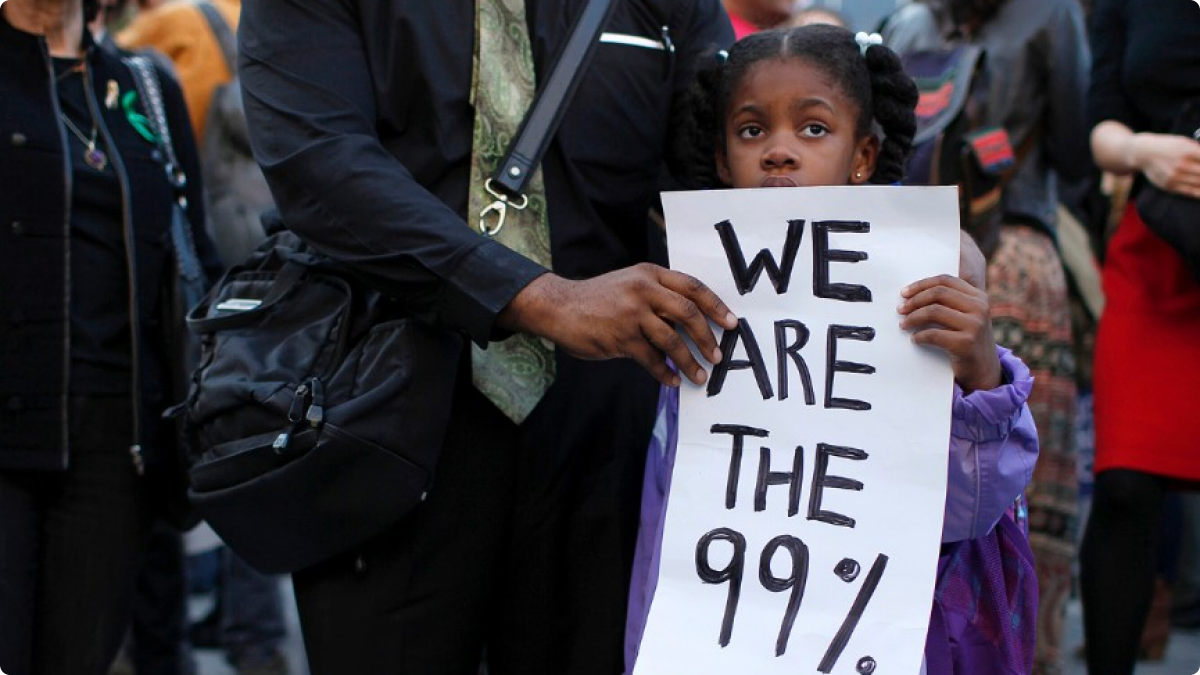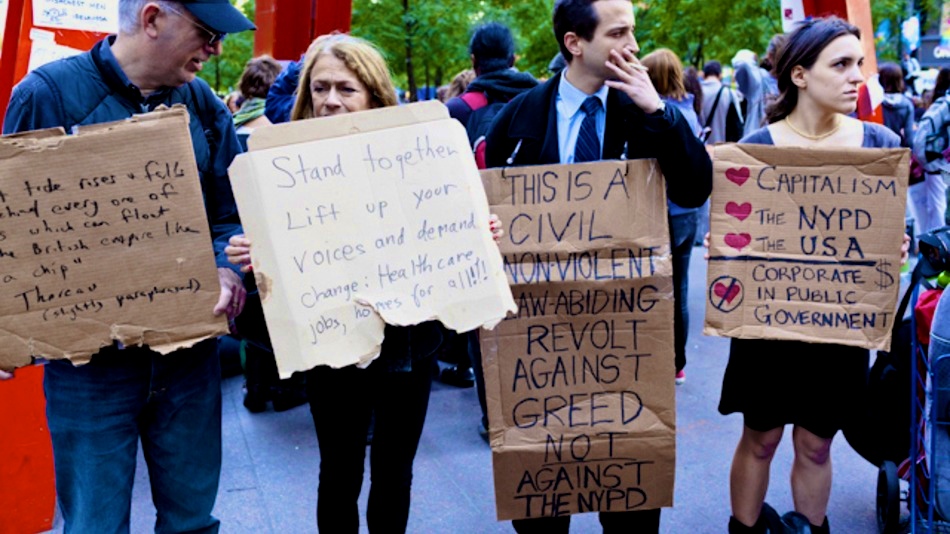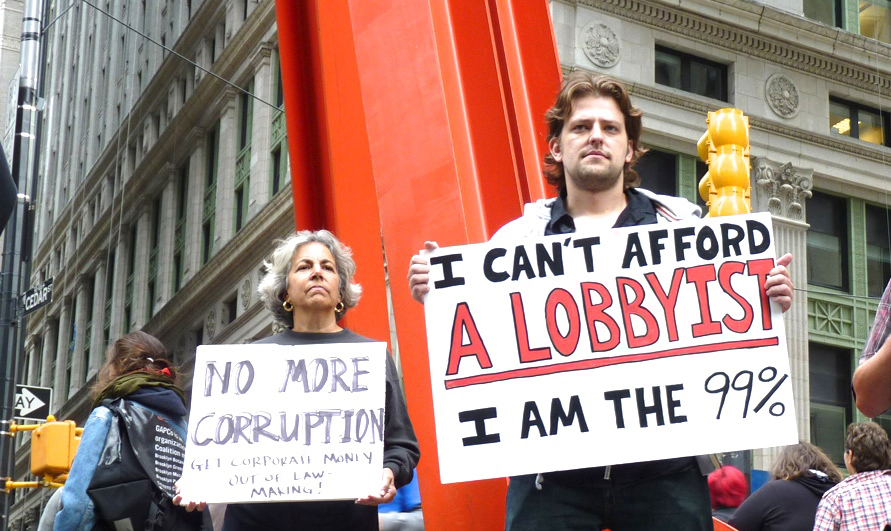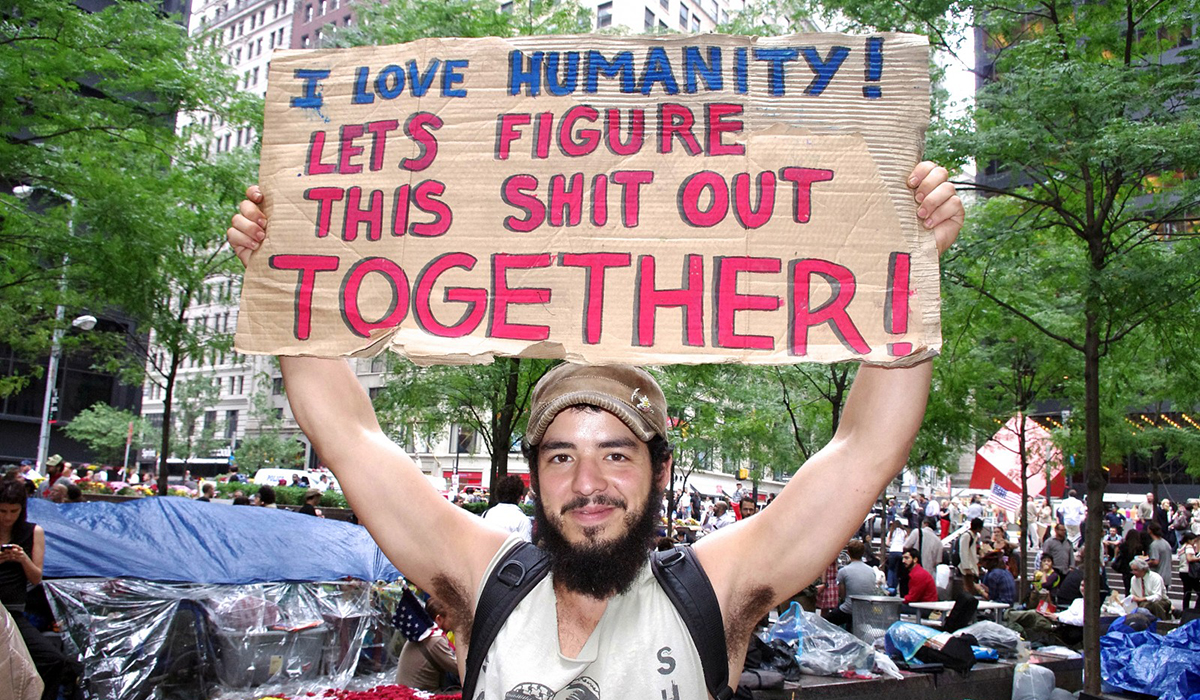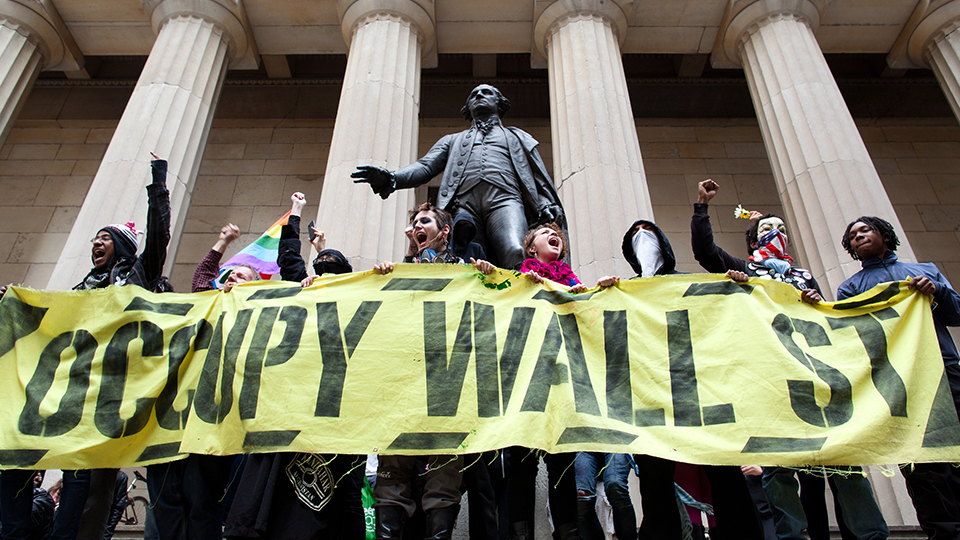
“Occupy Wall Street is making the power elite crazy. They can’t control them, there’s no one in charge.” — Diane Ravitch, education historian, on her first visit to Zuccotti Park, fall 2011
“Our movement is leaderless and leaderful.” —Dr. Cornel West, American philosopher, academic, activist, author
Last week, a power struggle within an Occupy collective emerged into the public realm when one member took sole ownership of the @OccupyWallSt twitter handle and began to issue calls to action and reflections on the history of the movement.
The act generated quite a bit of controversy among Occupy activists who feel, as I do, a strong visceral connection to a movement which has at every juncture defied formal leadership or hierarchy. Media outlets like Buzzfeed proclaimed last week’s outburst of public infighting to be the “final implosion” of Occupy, while bloggers debated its causes and implications: lack of consensus, over-reliance on consensus, consolidation of Occupy media properties, and more.
As the controversy ricochets across our still-vibrant networks, I write here to offer my own perspective on what immediate lessons can be learned from the debacle.
According to Google algorithms, I am the sole founder of the Occupy Wall Street movement. Of course, the only response to this absurd machine computation is a healthy dose of human laughter. A founder is a person who initiates something, not someone who merely gets caught up in the current of a mighty river.
That is exactly where I found myself in the fall of 2011, when my world turned upside down with exhilarating revolutionary fervor. I do not distance myself from that energy when I dissociate myself from the movement’s founding. On the contrary, I embrace that I’m a pebble on the mighty Colorado, not the mountain nor the raincloud that birthed it.
My particular role within Occupy Wall Street has given me the privilege of meeting literally thousands of activists in over a dozen countries since the movement began. In the park, I launched a social media collective called the #TweetBoat to document the stories of occupiers. And after the occupation I worked with students to initiate an alternative educational program in Brooklyn, bringing together Occupy activists and advocates fighting for democratic community control of schools.
I have never once envisioned myself or any other person as Occupy’s founder, but rather as a grateful beneficiary of its tremendous collective inspiration.
Perhaps in the future Google will adapt its algorithms to better identify key members of global resistance movements. Maybe we will all have custom search engines that tell us we are all those things our vanity wants us to be, in order to gently prod us into buying our way to positions of power. But that seems to me to be more of a step backward than forward – and viewed in the context of an increasingly powerful information-security state, quite troubling.
I revel in the countless overlapping circles of social relationships that constitute Occupy, and every time I think I’ve found the center of the whole operation, I’m delighted to meet a new person I never knew was involved who throws my organizational mapping off-track again. The contours of this global open-source movement, from Occupy Sandy to the Rastafarian Occupy Pinnacle to the Occupy Cancer support group, are epic.
How could anyone imagine being in control of all this interwoven resistance? Occupy is like a beautiful Mandelbrot fractal, infinitely expansive and spiraling out of control at every edge. I embrace this chaos as a citizen of the internet generation.
The mighty river that brought us together – patriots and dissidents, rulebreakers and visionaries, the broken toys of broken capitalism – doesn’t dam so easily. Even from the first days, it resisted definition and organization and explication and, yes, even ownership. This played out in the ceaseless dynamic of autonomy versus consensus in Zuccotti Park.
Even the tents, a global symbol of our movement, may not have gone up at all if a small group of anarchists hadn’t defied the General Assembly and taken autonomous action on the third night of the occupation. At every juncture of this movement, individuals have stood up and shown immense bravery in the face of uncertainty and brutal police resistance. It takes tremendous faith in each other to do so, knowing that your life will be forever changed by what you do for Occupy.
Consensus is the plowshare to autonomy’s sword, the glue that bonds us together while we struggle. It is as powerful as autonomy, but manifests itself in the desire of people to seek one another’s consent in order to move forward together. As the eventual dissolution of the New York City General Assembly showed, the process is fragile.
When stretched beyond the net of trust that our solidarity helped build, collective decision making can become coercive and ultimately exclusionary: the allure of finding consensus, by pushing out dissenters, overtakes our collective desire to agree. Consensus is a tool that must be wielded carefully.
I often ask myself why so many people have dropped everything – their jobs, salaries, loved ones, possessions, clean criminal records, comfortable lifestyles – to join Occupy Wall Street. Perhaps they feel, as I do, a raw connection to the indignation first expressed in theDeclaration of the Occupation of New York City:
“As we gather together in solidarity to express a feeling of mass injustice, we must not lose sight of what brought us together. We write so that all people who feel wronged by the corporate forces of the world can know that we are your allies.”
One could call everybody a founder of Occupy on the basis of this shared intention, but I prefer to call us keepers. Keepers of the faith in another possible world. Keepers of the hope instilled in us by ancestors, then smashed by our bosses, our so-called political leaders or police officers, only to be reconstituted that autumn day in Liberty Square, Oscar Grant Plaza and towns and cities across the country. I haven’t lost that faith yet.
Twenty years ago, when the indigenous rebel Zapatistas of southern Mexico rose up against their colonial-legacy oppressors, they proclaimed a mantra:
Para todos todo, para nosotros nada / Everything for everyone, nothing for ourselves
In an age of “online organizing” and the non-profit industrial complex, we seem to be becoming slaves of our own tools for social change. We relish every retweet, boast of the size of our email lists or Facebook pages, and pin our hopes on “disruptive technologies” to bring us the democratic revolution we all so deeply need.
This was the state of grassroots politics just before Occupy – and the temptation of individuals to hoard the movement’s social media clout will be our downfall if we don’t resist it actively and with solidarity.
Solidarity is like love: it multiplies when it is shared. It’s like a river that grows stronger with each incoming stream. To speak of its origin is to confuse the timeless with the fleeting and transient.
We are the 99%, the keepers of Occupy Wall Street and not the founders. We are swept up in the roaring rapids and still we have the humility to admit that we exist only to deliver it to the next generation, in the hope that they may live freer and happier than we did.
As the American radical Thomas Paine once said: “If there must be trouble, let it be in my day, that my child may have peace.”
3 WAYS TO SHOW YOUR SUPPORT
- Log in to post comments


